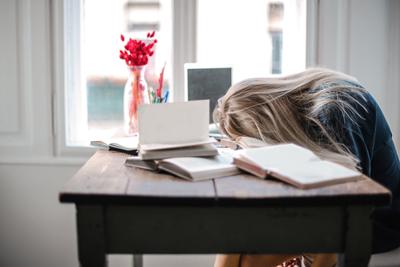
The Covid-19 pandemic has caused sleeping difficulties for women with young children, key workers and people of BAME heritage, a new study has found.
The study has revealed that sleep loss is affecting more people during the Covid-19 pandemic, reflecting rising stress levels due to anxieties about health, financial consequences, changes in social life and daily routine, all of which may affect sleep. Sleep deprivation can have knock-on effects for physical and mental health.
Conducted by Professor Jane Falkingham OBE and a team from the ESRC Centre for Population Change and Centre for Research on Ageing at the University of Southampton, the analysis used survey data from the Understanding Society COVID-19 Study collected during April 2020. It was then compared with survey data collected in 2018/19. The sample included 15,360 respondents aged 16 and above. From this sample, 12,206 people reported no problems with sleep loss before the epidemic. The pandemic lockdown led to a rise in the number of people suffering sleeping problems from one in six (15.7%) of the sample to one in four (24.7%).
The analysis provides evidence that women have been more vulnerable to sleep deprivation during lockdown. The proportion of women losing sleep over worry before the pandemic was 18.9%, rising to 31% during the pandemic. By comparison, the number of men reporting sleep loss increased from 11.9% to 16.5% during lockdown. These findings are in-line with much of the emerging research that suggests experiences during the Covid-19 pandemic in the UK have been very different for men and women.
For example, women’s position in the labour market may increase their exposure to Covid-19, as women represent a significant majority of frontline workers in social care, education and health care.
For women with children aged 0-4 years, 19.5% suffered sleep loss over worry before the pandemic. This doubled to 40% during the first four weeks of the lockdown. For women with school children aged 5 – 18, sleep loss also rose, from 21.7% to 38%.
People from BAME heritage were more likely to experience sleep loss during lockdown than those identifying as British White, mainly due to demographic and socioeconomic differences between the groups. The proportion of people in BAME groups reporting sleep problems was 20.7% before the pandemic, and 32% during lockdown. However when the research team compared BAME and White respondents who were equal in terms of being a key worker, having financial worries or having young children in the house, they found that BAME people would be less likely to suffer from sleep loss. Again, this highlights how BAME groups are being disproportionally affected by the coronavirus pandemic. These findings join up with recent research that BAME groups have higher rates of coronavirus infection, high anxiety associated with coronavirus-specific circumstances, are more likely to be key workers, to have dependent children, and to feel lonely. All of these are likely to increase the risk of sleep loss.
For keyworkers, the proportion reporting sleep problems before and after the pandemic was 16.4% and 28.9% respectively. Keyworkers from the health and social care (HSC) sector or education and childcare (ECC) sector had the highest increase of sleep loss since pandemic lockdown, from 19% to 36.6% for the health and social care sector and from 15.8% to 33% for the education and childcare sector.
Professor Falkingham comments: “We are seeing that Covid-19 is having a disproportionate impact on the health of individuals from different ethnic groups and those employed in certain jobs. The indirect impacts of Covid-19, including the closure of schools and businesses, and the move to home working, seem to be worse for working age people and women. These factors may, in turn, impact upon sleep health.”
She continues: “The Covid-19 pandemic and the policy responses to it have widened the differences in sleep deprivation across gender and ethnicity, putting women and ethnic minorities at an even greater disadvantage. Disrupted and poor sleep is associated with wider mental and physical health challenges. Policy makers and health professionals need to take action now. It will be vital that they support and promote better sleep health amongst vulnerable groups during the pandemic if they are to avoid future secondary health complications.”
The Understanding Society COVID-19 study is a monthly survey on the experiences and reactions of the UK population to the COVID-19 pandemic, funded by the Economic and Social Research Council (ESRC) and the Health Foundation. All Understanding Society adult sample members aged 16+ were invited to participate. The data analysed in this study is from the first wave of Understanding Society Covid-19 Study, conducted in April 2020. The data were then linked to Wave 9 of Understanding Society conducted in 2018/19, providing information about the respondents prior to the outbreak of the pandemic. The Health Foundation is an independent charity committed to bringing about better health and health care for people in the UK. The COVID-19 survey data is available to researchers via the UK Data Service.
The full study is available






